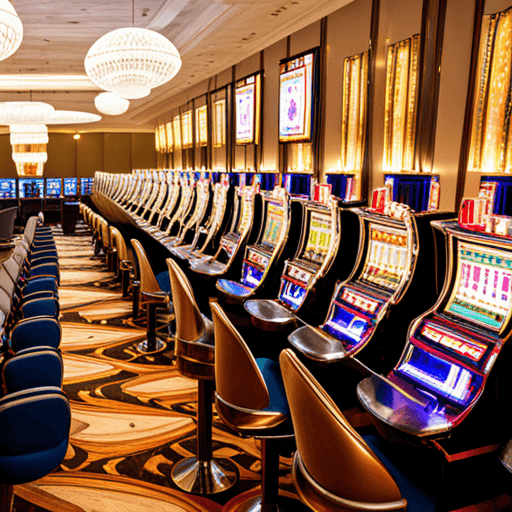
In the vibrant world of betting, gaming activities have long captured the imagination of participants around the globe. These options, spanning traditional table options like Texas Hold’em to the spinning reels of slots, offer an intriguing combination of randomness and strategy. While luck undeniably plays a significant role in determining outcomes, the significance of skill in many gambling games cannot be ignored. Comprehending how skill influences gameplay can elevate not only a player’s experience but also their chances of success.
As we dig into the dynamics of gambling games, it becomes clear that some require a solid foundation of understanding and planning. Activities like blackjack call for more than mere fortune; they require analytical thinking, psychological insight, and tactical decision-making. In comparison, other activities, such as the roulette wheel and slots, are primarily based on randomness, allowing participants to rely solely on luck. This distinction raises fascinating questions about what really drives success in the world of casinos and how a player’s abilities can tilt the balance in their advantage.
Grasping Expertise vs. sanvip Chance within Casino Games
Within the sphere of casino games, the debate between skill and luck is a enduring one. Several games are often divided into two categories: those that rely predominantly on randomness, such as slot machines and the wheel, and those where skill plays a major role, like the game of poker and blackjack. The difference is crucial because it affects not only gameplay strategies but also the approach players take when engaging with these games. While luck can play a decisive role in the immediate, skilled players can increase their chances of winning over the extended period in skill-based games.
Skill-based games, particularly poker, require players to comprehend odds, psychology, and game theory. A seasoned poker player can analyze rivals, make calculated bets, and understand when to fold, all of which can lead to more favorable outcomes. On the other hand, in games that are purely chance-driven, no amount of skill can alter the odds. This means that while a player may win big in one session, their success may frequently be subject to the whims of chance results rather than any tactical expertise.
Ultimately, both skill and luck coexist in the world of casino games, forming a dynamic environment for players. Although games of chance can provide thrill and instant gratification, proficiency and strategy in skill-based games offer a richer level of engagement for those willing to invest time in honing their craft. This interplay between skill and luck defines the experiences of players and shapes their connection with the games they select to play.
The Impact of Skill on Casino Results
In the field of gambling games, ability plays a key role in determining the outcomes, especially in activities where strategy and decision-making are paramount. For instance, in poker, competitors must examine rivals, calculate odds, and make strategic bets to maximize their chances of winning. Unlike games that rely purely on chance, such as slots or roulette, this game demands an understanding of both the rules and the behavior of other players, making skill a vital component of success.
Other strategy-based games, like blackjack, also highlight the significance of player expertise. Knowledge of basic tactics, card counting, and when to hit or stand can significantly influence the casino advantage. A proficient 21 player can lower this edge and boost their chances of success over time. This contrasts with activities that do not permit for such tactical play, showcasing how the level of expertise influences the potential for favorable outcomes.
Additionally, even within games deemed primarily chance-driven, like craps, the choices made by players can influence their overall success. Choosing the optimal bets, comprehending the odds of different outcomes, and controlling one’s bankroll are essential factors that can enhance a player’s experience and results. Thus, while chance remains a factor in casino games, skill can substantially affect how efficiently participants navigate these settings, leading to more positive outcomes.
Approaches for Skillful Play in Casinos
To excel in gambling games, players must develop a solid comprehension of the regulations and odds involved in every game. This foundational knowledge enables individuals to make informed choices, especially in skill-based games like Texas Hold’em and blackjack. Familiarizing oneself with game strategies, such as card counting in 21 or recognizing wagering trends in poker, can significantly enhance a player’s odds of success. Sharpening these tactics through practice games or lower-stakes games allows players to improve their skills without risking substantial amounts of money at risk.
One more key approach is budgeting. Players should establish a spending limit before entering the gaming establishment and adhere to it strictly. This involves determining how much they are willing to lose and imposing restrictions on how much they will bet in each session. By keeping a controlled approach to spending, players can sustain their play and reduce the chance of major losses. Additionally, taking breaks can help preserve a clear mind and prevent impulsive decisions that often lead to poor play.
Ultimately, emotional control is essential in the high-stakes environment of a gambling house. Players must learn to manage their emotions, particularly during periods of success or losing streaks. Staying focused and not allowing emotions influence gameplay can lead to more logical decisions. Techniques such as taking deep breaths or walking away from the gaming table during heated moments can help keep composure. By cultivating a balanced mindset, players can approach casino games with assurance and skill, ultimately improving their complete experience and results.
